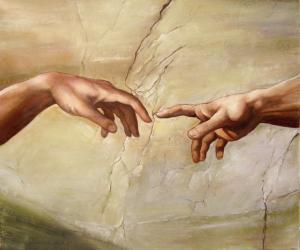
Here in the Los Angeles area there was a breaking news story. A local Catholic bishop had died. A gun was involved. There was little information more than that. In the moment it felt to me like it was very possibly a suicide. A sadness. Always.
The news cycle is moving on. And now it looks like a homicide. Another sadness.
But at the moment it triggered a cascade of feelings and thoughts about suicide. I wish anyone in such circumstances have people they feel they can reach out to for help. I also honor the right of a person to terminate their life. Many thoughts. Many feelings.
Of course the question begs a definition of sin that does not include offense against a deity. Buddhist ethics is a rich area worth knowing something about. The Wikipedia article on sin gives a pretty good working examination of sin from a Buddhist perspective.
Buddhist ethics is consequentialist in nature and is not based upon duty towards any deities. It is founded upon compassion for all sentient beings and upon the duty to cause their happiness and to prevent their suffering. The well-being of all sentient beings is seen as an end-in-itself, and not a means towards any transcendent end. Buddhist ethics therefore closely corresponds to secular ethics and there is no Buddhist equivalent of the Abrahamic concept of sin. Buddhism recognizes a natural principle of karma whereby widespread suffering is the inevitable consequence of greed, hatred and delusion. Buddhism therefore seeks to end suffering by replacing greed with selflessness, hatred with compassion and delusion with wisdom.
I would argue a bit with Wikipedia’s definition of consequentialist as it regards to a Buddhist understanding, as true enough, but in no way sufficient. At least within my understanding of Zen which is also my understanding of Unitarian Universalism (I suspect much could be played out from that, but some other time…) is that the action, whatever it is, is also the consequence, in addition to the various consequences that also follow the moment. We are and we are becoming. And, we are deeply, deeply interconnected. One could say its all about that interconnectedness.
Additionally I’ve come to see our intentions have a significant place within this whole thing. In that sense, what we think – we are. Okay. So, then to suicide.
My brother would be 73, now. Except in 1997 he blew most of his head off with a high powered rifle. That year my son also committed suicide. Pills and a walk into the wilderness. And, a few months after both of their deaths my mother died. At our home with the family present. Except for me. I was running an errand and came back after.
These words sit so quietly. I wish they were not so compliant, so still. But as limited as what those words convey, they’ll have to do. They suggest my ongoing relationship with death. And so much more. I hope this hints at that so much more.
And that brings us back to that simple assertion a bit earlier, how we are deeply, deeply interconnected.
Just to keep it all interesting not all that long ago a friend wanted to engage in a conversation about ego, focusing on whether it is just as delusonary to cling to a group ego as it is to one’s own ego. There were deeper questions of personal concern hidden within that question. Of course.
Where these events all come together is within our experience of self. Who am I? And, out of that, Cain’s question. “Am I my brother’s keeper?” A great koan, no doubt.
Our conventional sense of self is as an isolated being whose outer boundaries extending somewhere in the general vicinity of the skin. In some ways its an undeniable truth. The “I” is a byproduct of brain function and is responsible for the the safety and continuance of that collection of stuff that more or less extends to the skin.
But, we probe the matter a bit further and we see how much we in our simply physical, if simple can ever be used for physicality, reality, our actual boundaries are pretty vague, our senses themselves are very much part of that I and extend quite a distance past the skin, and we are connected through genes to all other life forms, some much, much more closely than others, and chemically vastly beyond that.
But there’s the stuff that presents in the mind, as well. And what makes me. I am profoundly marked by my brother’s death. I am profoundly marked by my son’s death. I am profoundly marked by my mother’s death.
In 1997 the constantly shifting being that calls itself “me” took some big hits and experienced some major shifts and while always becoming new, became something considerably different than before those three events.
So, suicide. Hospice. Natural death. Just plain death…
It all is situational. There are, to my mind, obvious reasons why one might choose to commit suicide. Unbearable pain is a pretty good one. And pain takes many shapes. That acknowledged, whatever the choice there will be consequences. And we don’t really know who will be marked by such an act.
Within interrelatedness, the consequences play out in mysterious ways.
Life and death, not precisely two things…













